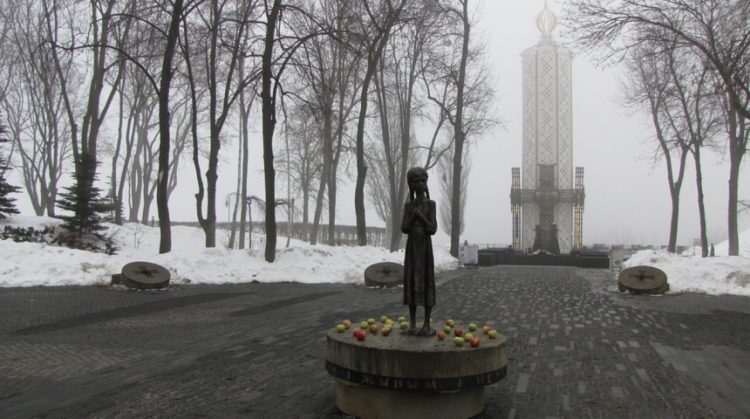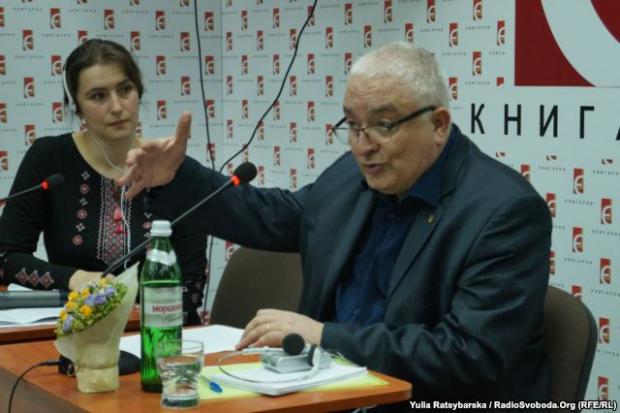The parliaments of Romania, Moldova, and Ireland have recognized Holodomor, Stalin's man-made famine of 1932-1933 that killed roughly four million Ukrainians, as genocide.
On 22 November, the Seanad Eireann of Ireland recognized the Holodomor as genocide of the Ukrainian people. "We show our solidarity with Ukraine in commemorating this man-made famine which was inflicted on the Ukrainian people by the deliberate policies of the totalitarian Stalinist regime which resulted in millions of innocent lives being lost," the declaration said, according to Ukraine's embassy to Ireland.
1/2 A truly historic decision by the Seanad Éireann to recognise #Holodomor of 1932-33 in Ukraine as a genocide of the Ukrainian people. Ireland is among our closest friends that is not afraid to call a spade a spade. #StandWithUkraine pic.twitter.com/9GCc5dAIdV
— UKR Embassy to Ireland (@UKRinIRL) November 24, 2022
On 23 November, lawmakers of both chambers of the Romanian parliament voted for a common declaration condemning the deliberate Holodomor famine with 248 votes in favor (one deputy abstained). It recognizes the Holodomor as a "genocidal, systematic actions, direct, cynical, criminal actions of the Soviet Union and its leaders to physically destroy the Ukrainian nation," Agerpres reports.
The following day, Moldova's parliament adopted a declaration recognizing Holodomor as a genocide of the Ukrainian nation with 54 votes in favor and the opposition being absent in the voting hall.
"The Great Famine (Holodomor) in Ukraine was a consequence of planned measures with the deliberate intent to physically exterminate opponents of the communist regime and became the key instrument of the policy of mass collectivization and enslavement of those times. As a result, some 22.4 million people were forcibly isolated in a zone of mass starvation," reads the text of the declaration, NewsMaker reports.
Moldova, Romania, and Ireland join 19 other countries that have recognized the Holodomor as genocide of the Ukrainian nation:
See which countries recognize Ukraine’s Holodomor famine as genocide on an interactive map
The Holodomor was one of Stalin's intentional policies regarding the Ukrainian population, an act of coercion and intimidation, an answer to the disobedience and resistance of Ukrainians against the coerced collectivization with which the totalitarian empire of the Soviet Union was to be built.
According to the research results of the Ptukha Institute of demography and social studies, 3 million 530 thousand people died from Holodomor in 1933. In 1932, 250 thousand died from starvation, and in 1934 – about 160 thousand. Overall, in three years – 3.9 million died, and 0.6 million more of the unborn, or, as they are also referred to, “indirect losses.” I.e., overall 4.5 million Ukrainians were lost due to the Holodomor of 1932-1933.
Find out about the Holodomor at a glimpse: Holodomor: Stalin’s genocidal famine of 1932-1933 | Infographic
Throughout decades, the topic of the Holodomor was tabooed. In Soviet times, the communist crime was hushed up. Only on 28 November 2006, Ukraine's parliament recognized the Holodomor as genocide. Many other governments did the same.
Genocide refers to intentional actions aimed at the total or partial destruction of particular groups of the population or entire nations based on national, ethnic, racial, religious or religious motives. Examples of genocides include the Holocaust, the Armenian Genocide in Türkiye (1915-1923), the genocide in Rwanda (1994), the genocide in Srebrenica (1995).
One of the coauthors of the legal definition of genocide, Rafael Lemkin, considered Holodomor a classical example of a Soviet genocide, the longest and widest attempt to Russify and destroy the Ukrainian nation.
Related:
- My family survived Holodomor by eating waste left from sugar production | Voices of witnesses
- Was Holodomor a genocide? Examining the arguments
- Holodomor: Stalin’s punishment for 5,000 peasant revolts
- Half our village died of starvation, mostly the elderly | Voices of Holodomor witnesses
- So how many Ukrainians died in the Holodomor?
- Documents reveal Soviet repressions against those resisting Holodomor genocidal famine
- Why the Holodomor is genocide under UN convention: On Anne Applebaum’s Red Famine
- Ukrainians suffered three terror famines under the Soviets not just one
- Stalin’s terror famine killed Ukrainians at twice the rate of other nationalities, HURI study says
- The Holodomor of 1932-33. Why Stalin feared Ukrainians
- Stalin’s genocidal Holodomor campaign of 1932-33. What we know vs the denialist lies
- Stalin starved populations to death to russify Ukraine, North Caucasus and Kazakhstan, statistics show
- On Holodomor denial, and fisking a denialist Russian professor of History
- History, Identity and Holodomor Denial: Russia’s continued assault on Ukraine
- The liars of Kremlin dance on the graves of famine victims





